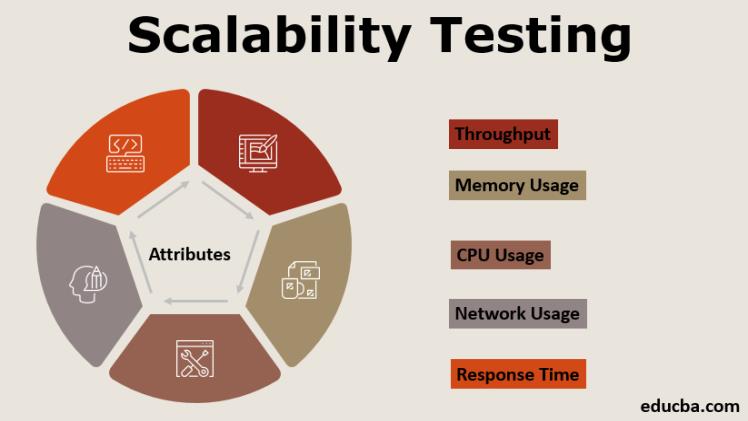The Importance of Scalability in Software Development

Scalability is an integral element of business. From IT systems and processes to algorithms and hardware components, being able to adapt in an expanding context is vital.
Companies that can flexibly scale have the capability of increasing or decreasing resources during peak times as needed in order to meet customer demands without interruption or compromise.
Cost-effectiveness
Scalability is key for businesses seeking to attract new customers and expand their market potential. To do this, businesses must ensure their technology systems can handle more workload without impacting performance or data security; one effective method for doing this is through software scalability development.
Horizontal software scalability is an ideal solution for applications requiring increased processing power, as this method involves adding more hardware components to the system – through processes like load balancing or distributed computing – while vertical scaling provides extra memory and storage space by upgrading existing servers with faster processors and memory modules.
Downward scalability is also critical but often ignored, leading many technically impressive applications to fail due to insufficient downward scalability – for instance Blackberry’s BBOS 10 platform did not reach critical thresholds of end users or apps needed for success due to this issue.
Flexibility
Scalability provides businesses with flexibility when faced with unpredictable demand, as they can quickly adjust their technology systems to accommodate increased or decreased workloads without incurring unnecessary costs or performance losses.
Scalability provides businesses with an edge during peak seasons or special promotions while still remaining efficient during off-peak periods, adjusting resources as necessary to minimize infrastructure disruption. Scalability also promotes productivity and savings; for example a system capable of supporting 100,000 clients can easily accommodate more without incurring additional costs or procuring new equipment.
Scalability is an integral aspect of software and hardware products, both software and hardware alike. By its definition, scaling ensures that products retain functionality as they grow in size or volume without negatively affecting performance; this can be accomplished using different techniques such as horizontal and vertical scaling; it should also be considered during development phases.
Performance
Performance is of vital importance when it comes to scaling. This encompasses hardware or software systems’ capacity to expand upward, as well as how well they perform when their workload increases.
Scalability should be one of the top considerations for business leaders when purchasing hardware and software. Being able to expand a system without negatively affecting performance can save businesses money over time.
Scalability refers to the ability of hardware and software systems to respond to changing workloads and application processing demands in response to increased traffic or responsive performance demands. Horizontal or vertical scalability may be employed; horizontal scaling involves adding more servers into an environment to manage increased traffic while simultaneously decreasing load on each server; in contrast, vertical scalability involves expanding capacity within existing components – usually by increasing memory or processing power of existing servers – so as to meet application processing demands more easily.
Security
One of the most essential tasks for any business is ensuring its IT can support future expansion. This is especially crucial for small enterprises that tend to grow quickly and offer greater potential for expansion than their larger counterparts. Thanks to technological advancements, providing convenient yet secure solutions has never been easier!
Scalability and security are core software qualities, yet often require different approaches. Interviews with experts indicate that security and scalability may compete for resources and attention; however, this doesn’t preclude their simultaneous attention: interviewees noted how scalability can actually aid security by stressing systems to find vulnerabilities; moreover, security metrics may alert users before critical scalability issues become an expensive long-term cost to business. In this way, companies can continue growing without worrying about lack of availability or performance issues limiting growth prospects.



